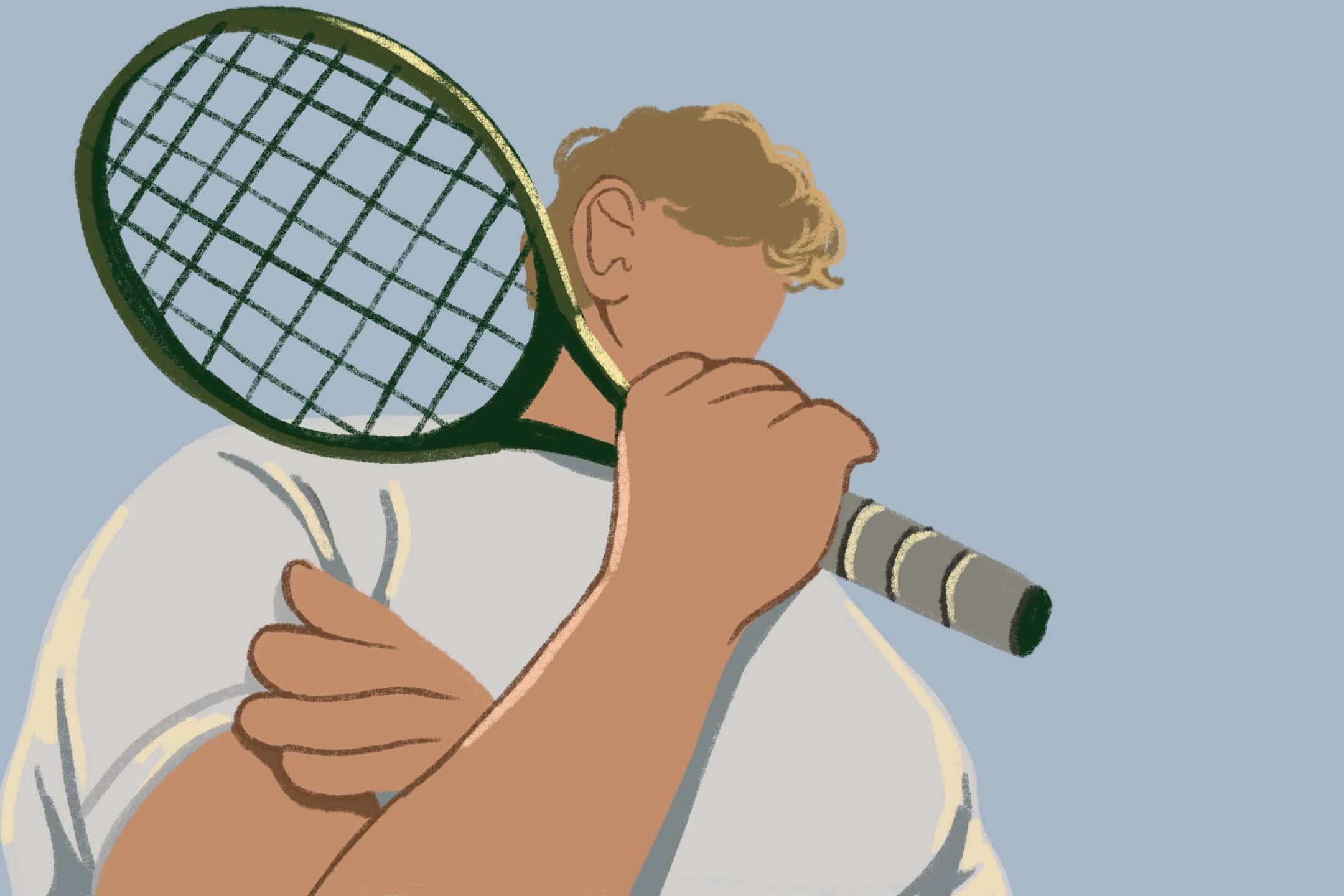This article contains spoilers.
It’s been nearly six months since Luca Guadagnino’s Challengers hit theatres, yet the sports dramedy of the year continues to spark discussions — especially as the Toronto International Film Festival (TIFF) brought film fever to Toronto last month.
Guadagnino’s next feature film Queer — a historical romantic drama centred on the relationship between an American expatriate (Daniel Craig) and a younger man (Drew Starkey) in 1950s’ Mexico City — had its North American premiere at TIFF 2024. In anticipation of Queer’s festival release, revisiting the summer heat and homoeroticism of Challengers can present an opportunity to rally once again and think critically about the portrayal of love and competition in the world of professional tennis and situationships — and, of course, to see Josh O’Connor’s smile again.
Challengers follows the journeys of three American tennis players — Art Donaldson (Mike Faist), Tashi Duncan (Zendaya), and Patrick Zweig (O’Connor) — as they navigate their youth, college, and professional careers as both competitors and lovers. Donaldson and Zweig, once teammates and friends, have a falling out over their competing romantic interests in Duncan, who suffers a career-ending injury in college and resolves to marry and coach Donaldson.
After each struggle as elite-level competitors, Donaldson and Zweig meet in the finals of a Challenger tournament: the second tier of professional tennis. Here, their historically intertwined relationships with each other, Duncan, and the sport they love converge in an intensely sweaty grudge match. The friends-turned-competitors each win one of the first two sets, both struggling to maintain their advantage amid faults and code violations for letting their emotions run high. The final set features lengthy rallies, intentional double faults, more code violations, and a shockingly memorable ending to the game that you’ll have to see for yourself.

It’s a fine line between love and hate. ANTHONY GRECO/THE VARSITY
Told in alternating time periods — from the present-day Donaldson vs. Zweig match to key past moments in the character’s lives — the film’s structure mirrors that of a tennis game: every point, every serve, and every move is interconnected, weaving together chapters for an ending that never seems to arrive. The final 30 minutes of the final set arguably ventures too far into overdramatization, with a comically timed windstorm and slightly drawn-out match point and tiebreak.
Zoomed-in camera shots of sweating and physical touch, obscene in-game moments, and an electric score highlight the competitive and erotic nature of both tennis and romantic partnerships in the lives of the three main characters. This intensity is to be expected from Guadagnino, who has shown his fascination with all-consuming intimacy in works such as Call Me By Your Name (2017) and Bones and All (2022).
Although Challengers is a fun watch that explores urgent issues surrounding socioeconomic insecurity and queerness in sports through the characters’ relationships with tennis, it is by no means a perfect film or a complete portrayal of tennis as a sport and culture. The challenger match features code violation after code violation, a sequence of events that, while not impossible, seems conveniently allowed for plot purposes.
It is always interesting to ponder the commercial longevity of box-office hits like this, considering its young, rising cast and themes surrounding queerness in elite sports. Perhaps future audiences will see through the sweaty sexiness and recognize apparent inaccuracies in tennis and plot inconsistencies. Or, perhaps they too will be blinded by Zendaya’s beauty and O’Connor’s and Faist’s undeniable chemistry. I suppose we’ll just have to wait and see.



No comments to display.